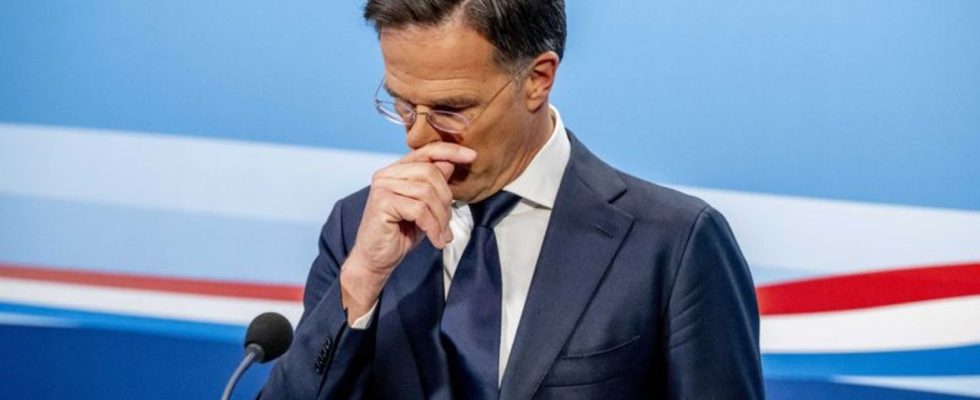migration
Asylum policy: government alliance in the Netherlands bursts
Mark Rutte, Prime Minister of the Netherlands, addresses the press after the weekly Council of Ministers. photo
© Robin Utrecht/ANP/dpa
In several attempts, the government in The Hague had fought for a more restrictive migration policy. Instead of a typical Dutch compromise, the bang comes after a crisis meeting.
That same evening Rutte wanted to offer King Willem-Alexander in writing the resignation of the cabinet. The king will interrupt his vacation and receive Rutte personally at the palace today.
It was the fourth government of the right-wing liberals. She has been in office since early 2022. Rutte himself has been Prime Minister of the Netherlands for almost 13 years. According to observers, new elections will not take place until November.
Crisis of confidence in Dutch politics
The crux of the evening crisis meeting in The Hague was a restriction on the family reunification of refugees who are already in the country and which Rutte’s right-wing liberal party VVD had demanded. These demands went too far for the other parties. In particular, the conservative Christian Union insisted on the possibility for children of civil war refugees to come to their parents in the Netherlands.
The Netherlands is struggling with a mainly home-made asylum crisis: According to the authorities, around 47,000 people sought asylum there last year – not an exceptionally high number. In 2015, around 60,000 were registered. But in order to save money, the government had cut staff and places in reception centers. The waiting time for the processing of asylum applications became longer and longer. In addition, the general misery on the housing market means that there are hardly any free places in the halls of residence.
In the midst of a major crisis of confidence in Dutch politics, the asylum dispute is also seen as a pretext for the government’s break-up. The four-party government hardly makes any decisions on many of the important issues that people in the Netherlands are passionate about. In addition to migration policy, these are the housing shortage, the energy transition and climate policy. One of the major conflicts is the future of agriculture in view of announced environmental regulations.
Rutte’s future plans open
After almost 13 years in the office of Prime Minister, 56-year-old Rutte is one of the longest-serving heads of government in the EU. Since January 2022, he has led his fourth cabinet after coalition negotiations that lasted a good nine months, making them the longest in the country’s history. A total of four parties were needed to achieve a majority in the second chamber of parliament: these were Rutte’s right-wing liberal VVD, the left-liberal D66, the Christian Democratic CDA and the small Christian Union.
After numerous crises, the coalition’s poll numbers had fallen sharply. In the most recent provincial elections in March, in which the first chamber of parliament – comparable to the Federal Council – was elected, all governing parties posted significant losses. The big election winner was the right-wing populist peasant movement BBB, which became the strongest force right away. The BBB is only represented by one deputy in the Lower House. Great success is predicted for the party in a new election.
If Rutte’s intention is to run for the prime minister’s office for a fifth time in a new election, observers speculate that there may have been a strategy behind the boiling up of the asylum dispute. The calculus could be to gain profile with the hot topic and win voters back from the new force on the right, the BBB. Observers also do not rule out that Rutte relies on other government partners – and according to the polls he could find them mainly on the extreme right. But for the time being, the Prime Minister has not committed himself to his plans for the future.

